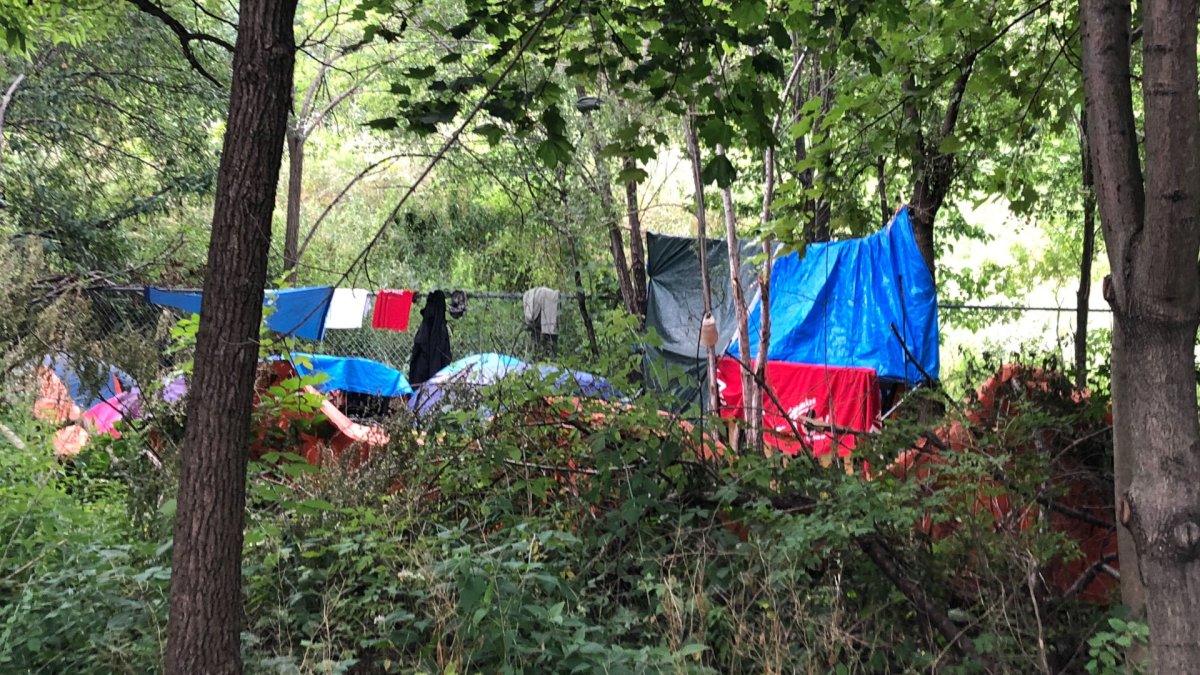The latest city-led survey of individuals experiencing homelessness is suggesting the COVID-19 pandemic and health issues are key barriers holding many back from maintaining or obtaining housing in Hamilton.

The Point-in-Time Connection (PiTC) survey, which conducted 545 surveys over the five-day period in mid-November, also submitted that housing affordability, low incomes, landlord/tenant conflicts, poor housing conditions and discrimination were other key factors that kept people away from stable accommodations.
“Forty per cent of those surveyed reported having a chronic illness or health condition,” city staff said in its summary of the PiTC research.
“About 270 respondents had been to an emergency department in the last 12 months, with a cumulative total of 787 emergency department visits.”
Compared to the last two surveys, the 2022 edition had a shift in its demographic profile with twice as many (53 per cent) people identifying as women, higher than the 32 per cent in 2018 and 28 per cent in 2016.
Nadia Zelisko, the city’s manager of homelessness policy and programs, says that shift was a “spotlight” of social and racial inequities and vulnerabilities among marginalized groups amid the pandemic.
With more women than ever are accessing city services, Zelisko says the city is putting a high priority on understanding experiences like “hidden homelessness” which sees many “couch surf” or stay in unsafe environments.
“It does pose some interesting questions about the extent to which women have been disproportionately impacted during the pandemic,” Zelisko told Global News.
“I think the fact that we were able to connect with and survey so many more women also speaks to the additional resources that we were able to bring online during the pandemic.”


Get breaking National news
Zelisko admitted the the data does not show a “conclusive finding” on the number of women versus men experiencing homelessness in Hamilton.
She says it speaks to the number of people who accessed services and consented to the survey during a stretch of time in November.
Around 23 per cent of all respondents identified as Indigenous or as having Indigenous ancestry, while 10 per cent identified as 2SLGBTQ+.
Staff sought a larger number of people staying outdoors (60) in unsheltered locations and in encampments (35) for 2022 compared to the two previous initiatives. In 2016, 34 survey respondents were in unsheltered and/or encampments polled while just 25 appeared in the 2018 study.
A majority of the respondents were aged between 31 and 49-years-old in the 2022 version and were identified as ‘staying alone’ when surveyed.
Close to 78 per cent of respondents indicated they’ve lived in Hamilton for more than one year and indicated a need for enhanced income supports to address their housing affordability needs.
The survey was jointly coordinated by Hamilton’s Housing Services Division and the local Indigenous community through the Coalition of Hamilton Indigenous Leadership (CHIL) with the goal of ensuring city resources are used ‘efficiently and effectively’ to prevent and end homelessness.
City outreach programs interacted with over 565 individuals in encampments between January 2020 and October 2021, housing 81 through support programs and finding some sort of shelter for 430 people.

In January, a study from pair of inner-city doctors suggested people living rough in Hamilton can expect to have a below-average life expectancy, primarily driven by drug overdoses.
The report, “Deaths in the Hamilton Homeless Population” said at least 19 people without residences died in the city during a six month period in 2021.
“The most alarming statistic we found in the data … was that the average age at the time of death was 36,” Wiwcharuk told 900 CHML’s Good Morning Hamilton.
“That’s compared to the life expectancy of the average Hamiltonian, which is 81, according to Stats Canada.”
Don Seymour, executive director at Wesley Urban Ministries, told Global News in late February that study likely doesn’t capture the true plight of individuals experiencing homelessness suggesting there are more than 19 a year that die each year.
“A lot of people probably require years of rehabilitation and medical treatment, and that doesn’t exist” said Seymour.
“This is not just a homeless crisis, this is a health crisis … we don’t even know how many people are dying.”
Seymour suggests the city may have to accept “coexistence” with those experiencing homelessness and embark on an initiative to engage those resigned to a life on Hamilton’s streets.
He says choosing outreach workers over police in conversation as well as sanctioning sites where tents can be set up maybe options the city will have to consider other than straight shelters.
“Those are constantly full on any given evening,” Seymour said.
“They’re places that are necessary, but a lot of people cannot or will not use shelters.”
In January, city councillors approved a plan to set up a roundtable discussion to bring together experts, front-line workers and people who have been homeless, in the hopes closing gaps in service and ending encampments in Hamilton.
Zelisko says the data taken from the survey is expected to give city staff a better idea of what partnerships will need to be strengthened to fill the gaps.
“We need effective partnerships that ensure wraparound supports are in place for people who require it to … be able to access and maintain their housing” Zeliko said.















Comments